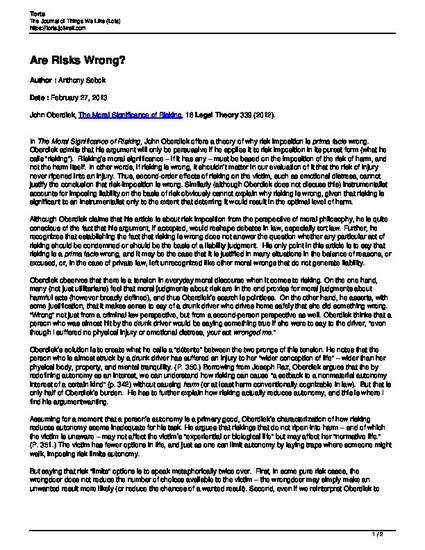
In The Moral Significance of Risking, John Oberdiek offers a theory of why risk imposition is prima facie wrong. Oberdiek admits that his argument will only be persuasive if he applies it to risk imposition in its purest form (what he calls “risking”). Risking’s moral significance – if it has any – must be based on the imposition of the risk of harm, and not the harm itself. In other words, if risking is wrong, it shouldn’t matter in our evaluation of it that the risk of injury never ripened into an injury. Thus, second-order effects of risking on the victim, such as emotional distress, cannot justify the conclusion that risk-imposition is wrong. Similarly (although Oberdiek does not discuss this) instrumentalist accounts for imposing liability on the basis of risk obviously cannot explain why risking is wrong, given that risking is significant to an instrumentalist only to the extent that deterring it would result in the optimal level of harm.
Available at: http://works.bepress.com/anthony-sebok/323/
